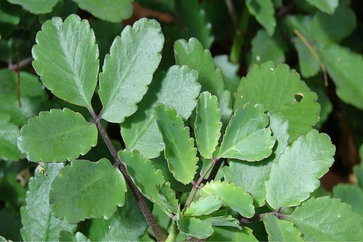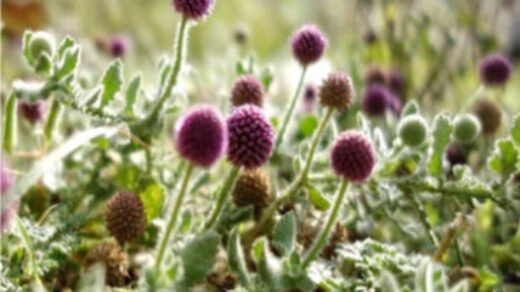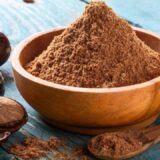Patanjali’s Top 10 Spices to Boost Winter Health
Winter is the season of chilly winds and cozy nights, but it also brings challenges like colds, indigestion, and low immunity. According to Ayurveda, our body needs extra warmth and nourishment during winter to stay balanced and healthy. The cold weather can aggravate Vata and Kapha doshas, leading to sluggish digestion, excess mucus, and joint stiffness.
That’s where spices come into play. These natural powerhouses not only flavor our meals but also support our health by boosting digestion, promoting circulation, and enhancing immunity.
Spices like ginger, cinnamon, and turmeric are known for their ability to warm the body, stimulate the digestive fire (Agni), and clear excess congestion, making them essential for combating the seasonal imbalances that arise during the colder months.
By incorporating these warming spices into your daily routine, you can effectively nourish your body and mind, keeping you strong and vibrant throughout winter.
Ayurveda and Seasonal Adaptation: The Concept of Ritucharya
In Ayurveda, Ritucharya refers to the practice of aligning one’s lifestyle and dietary habits with the changing seasons.
This ancient system recognizes that each season has a unique impact on the body, influencing the balance of the three doshas—Vata, Pitta, and Kapha. Seasonal adaptation is key to maintaining harmony and preventing health issues, as the body’s needs shift with the weather.
Winter Season: Kapha and Vata Doshas
Winter is a time when both Kapha and Vata doshas dominate. Kapha, associated with cold, dampness, and heaviness, increases during the colder months, leading to imbalances such as sluggish digestion, increased mucus production, colds, and weight gain.
On the other hand, Vata, which governs movement and dryness, can cause dry skin, joint stiffness, and feelings of coldness when out of balance. Without proper attention, these doshas can disrupt overall health.
Ayurvedic Approach to Winter Health
In Ayurveda, balancing the excess of Kapha and Vata during winter requires lifestyle and dietary adjustments. The aim is to keep the body warm, hydrated, and properly nourished, while supporting digestion and immunity.
Here’s how Ayurveda suggests managing the winter season:
1. Warming Foods: To counter the coldness of winter, Ayurveda recommends consuming warming, grounding foods that are nourishing and easy to digest. Foods like soups, stews, warm grains (such as rice or oatmeal), and cooked vegetables help balance Kapha and Vata.
2. Spices for Digestion and Immunity: Warming spices such as ginger, black pepper, turmeric, cinnamon, and cloves are often incorporated into meals and teas. These spices stimulate digestion, improve circulation, and help to maintain a healthy immune system, which is particularly important during the cold season.
3. Oil Massage (Abhyanga): Regular oil massage with warming oils, such as sesame oil, can help soothe dry skin, alleviate joint stiffness, and balance the doshas. This practice also enhances circulation and promotes relaxation.
4. Adequate Rest and Sleep: Winter is a time for rest, as the body’s energy is naturally drawn inward. Ayurveda advises early bedtime and quality sleep to help the body rejuvenate and maintain its natural rhythm.
5. Herbal Remedies: Ayurvedic herbs like ashwagandha, Triphala, and tulsi can be used to enhance immunity, boost energy, and keep seasonal illnesses at bay.
6. Avoid Overeating and Cold Foods: While warm, nourishing foods are recommended, cold, raw, or heavy foods should be avoided during winter, as they can aggravate Kapha and Vata imbalances and lead to digestive issues.
By incorporating these Ayurvedic practices, one can harmonize with the rhythms of winter, ensuring health, vitality, and balance throughout the season.
Why Spices Are Essential for Winter
In Ayurveda, spices are considered powerful allies for maintaining balance in the body, especially during the winter months.
The colder weather naturally triggers imbalances in the doshas, particularly Kapha and Vata. Spices are essential in winter for several reasons:
1. Generate Internal Warmth: Cold weather increases the need for warmth, and spices like ginger, cinnamon, and black pepper naturally generate heat within the body. This internal warmth is vital to maintain the body’s core temperature, prevent cold-related ailments, and promote overall comfort.
2. Boost Circulation: Many warming spices stimulate blood flow, which can become sluggish in the cold. Spices such as cumin, mustard seeds, and garlic help improve circulation, ensuring that oxygen and nutrients are effectively delivered throughout the body.
3. Aid Digestion: During the winter months, the body’s digestive fire, or Agni, tends to weaken. Spices help stoke this digestive fire, making it easier to digest heavier, more warming foods. This promotes healthy digestion and prevents digestive discomfort, which can be common during colder seasons.
4. Strengthen Immunity: Winter is also a time when colds, flu, and other seasonal illnesses are prevalent. Spices like turmeric, cloves, and garlic are known for their immune-boosting properties. Their antibacterial, antiviral, and anti-inflammatory qualities help the body resist infections and promote overall health.
Balancing Kapha and Vata Doshas in Winter
Winter aggravates both Kapha and Vata doshas, each in unique ways. Kapha, linked to cold, dampness, and heaviness, can lead to an excess of mucus, lethargy, and weight gain.
On the other hand, Vata, associated with dryness and coldness, can result in dry skin, joint stiffness, and feelings of coldness. Warming spices are particularly effective in counteracting these seasonal effects.
Counteracting Kapha Imbalances:
- Kapha’s qualities of heaviness and dampness can lead to excess mucus, sluggish digestion, and lethargy. Warming spices such as ginger, black pepper, and mustard seeds help to stimulate digestion, reduce mucus production, and increase metabolism.
- These spices also help with clearing congestion and promoting movement in the body, which reduces the stagnant, heavy energy that Kapha can create in the winter.
Counteracting Vata Imbalances:
- Vata’s characteristics of dryness, coldness, and movement can lead to dry skin, joint discomfort, and feelings of coldness. Warming spices like cinnamon, cloves, and cardamom are excellent for soothing dryness and providing warmth to the body.
- These spices help to lubricate the joints, support hydration, and combat the drying effects of winter, bringing balance to the Vata dosha.
Top 10 Key Ayurvedic Spices for Winter
These 10 Ayurvedic spices are essential during winter for their ability to balance the cold and dry qualities that dominate the season.
By incorporating them into your meals, teas, and daily routine, you can enhance digestion, boost immunity, and stay warm and comfortable throughout the colder months.
1. Ginger (Zingiber officinale)
Properties: Warming, stimulating, anti-inflammatory.
Benefits: Ginger is considered one of the most potent spices in Ayurveda, especially in winter. It helps to stimulate the digestive fire (Agni), improving digestion and absorption of nutrients.
Ginger also warms the body internally, making it highly effective against the cold. Its anti-inflammatory properties help reduce muscle and joint stiffness, which is common during the winter months.
Additionally, it strengthens immunity by fighting off colds, flu, and other respiratory issues, making it an excellent addition to herbal teas or warm soups.
2. Cinnamon (Cinnamomum verum)
Properties: Warming, sweet, pungent.
Benefits: Cinnamon is revered for its ability to increase circulation and bring warmth to the body, which is essential in the cold winter months.
It aids digestion by enhancing the action of the stomach acids and reducing bloating and indigestion. Cinnamon also has the ability to balance blood sugar levels, which can help prevent the weight gain often associated with the winter season.
It is a great spice to use in teas, smoothies, baked goods, or as a seasoning for stews and soups, offering both flavor and medicinal benefits.
3. Black Pepper (Piper nigrum)
Properties: Hot, pungent, stimulating.
Benefits: Black pepper is known for its ability to promote warmth and stimulate the digestive system. It is particularly beneficial for Kapha types, as it clears excess mucus and helps combat cold, damp conditions that cause congestion.
The spice enhances circulation and stimulates the respiratory system, making it perfect for warding off seasonal colds and coughs.
In addition to aiding digestion, black pepper also helps the body absorb other nutrients more effectively. It can be added to both savory and sweet dishes, enhancing their flavor and health benefits.
4. Cloves (Syzygium aromaticum)
Properties: Warm, aromatic, slightly sweet.
Benefits: Cloves are prized for their ability to relieve joint pain and muscular stiffness, common during the winter months.
They contain compounds that have potent anti-inflammatory properties, helping to reduce swelling and discomfort. Cloves also act as a natural expectorant, promoting the clearing of mucus from the respiratory tract.
In addition to their soothing effects on the body, cloves support the digestive system by relieving bloating and indigestion.
They are often used in Ayurvedic tea blends, or added to soups, stews, and rice dishes to enhance both flavor and health benefits.
5. Cardamom (Elettaria cardamomum)
Properties: Sweet, warm, aromatic.
Benefits: Cardamom is a warming spice that not only helps balance Vata dosha (which can become aggravated during the dry winter months) but also alleviates digestive issues such as gas, bloating, and constipation.
It has a soothing effect on the stomach and can improve appetite. As a natural diuretic, cardamom helps flush out toxins and supports kidney function.
Additionally, it is a great spice for balancing excess dryness and coldness, which are common during winter. Its pleasant flavor makes it ideal for adding to teas, desserts, or savory dishes like curries and rice.
6. Turmeric (Curcuma longa)
Properties: Warm, pungent, anti-inflammatory.
Benefits: Turmeric is an excellent spice for combating the dry, cold conditions of winter due to its potent anti-inflammatory properties. It supports the immune system, helping to fight off infections, colds, and flu.
Turmeric also helps reduce joint pain and inflammation, which can worsen during colder weather. It strengthens digestion by increasing the digestive fire (Agni) and detoxifying the body.
Often used in golden milk or mixed with other spices like black pepper, turmeric provides both warmth and health benefits, making it a must-have in winter kitchens.
7. Mustard Seeds (Brassica nigra)
Properties: Hot, pungent.
Benefits: Mustard seeds are extremely beneficial in winter as they help to stimulate digestion, boost metabolism, and increase body warmth.
The warming quality of mustard helps in breaking down and eliminating excess mucus caused by Kapha imbalances, such as a runny nose or cough.
Mustard seeds also improve circulation, reduce the feeling of coldness, and can be used to relieve muscle pain or stiffness. They are commonly used in tempering or as a spice in soups, stews, and pickles, adding flavor while providing medicinal benefits.
8. Fenugreek (Trigonella foenum-graecum)
Properties: Bitter, warming, slightly sweet.
Benefits: Fenugreek is a warming spice known for balancing Kapha by reducing excess mucus and helping with congestion.
It is especially beneficial for promoting healthy digestion and relieving conditions like bloating, constipation, or indigestion, which can be aggravated in winter due to a slow digestive fire.
Fenugreek also helps in alleviating the dryness associated with Vata dosha, especially in the skin and respiratory system.
Its detoxifying properties support the elimination of toxins from the body, promoting overall health. Fenugreek seeds can be used in teas, as a seasoning in food, or even sprouted for added nutrition.
9. Bay Leaves (Laurus nobilis)
Properties: Warming, pungent, slightly bitter.
Benefits: Bay leaves have a warming effect on the body, and their bitter taste helps stimulate the digestive system. They are particularly effective in reducing the build-up of mucus and supporting respiratory health.
The warming and soothing nature of bay leaves also makes them ideal for promoting circulation and combating coldness in the body.
Additionally, bay leaves have antimicrobial properties that can help protect against winter illnesses. They can be used in cooking, added to soups, stews, and rice, or infused in hot water for a detoxifying herbal tea.
10. Saffron (Crocus sativus)
Properties: Warm, sweet, aromatic.
Benefits: Saffron is a luxurious spice known for its warming and mood-lifting properties. It has a calming effect on the mind and body, which is particularly useful during the winter months when seasonal affective disorder or low energy can occur.
Saffron is also a powerful antioxidant and anti-inflammatory, helping to alleviate winter-related dryness and skin issues.
It enhances circulation and promotes warmth in the body while balancing both Kapha and Vata doshas. Saffron can be added to teas, rice dishes, or desserts to enjoy its soothing benefits.
How to Incorporate Spices into Your Winter Routine
In Ayurveda, using spices as part of your daily routine helps maintain balance during the colder months. Winter often brings challenges like sluggish digestion, dryness, and weakened immunity, but spices are a natural remedy to boost warmth, digestion, and overall vitality. Here are several ways to incorporate these key Ayurvedic spices into your winter routine:
Spice-Infused Teas
One of the simplest and most effective ways to enjoy the benefits of warming spices is through spice-infused teas. A cup of hot tea with the right spices can provide a soothing and healing effect on the body, particularly during the cold winter months.
- Turmeric Tea: Turmeric has powerful anti-inflammatory and immune-boosting properties. You can brew a cup of warm water with a pinch of turmeric powder and black pepper (which enhances the absorption of turmeric) for a calming, detoxifying tea. Adding honey and lemon can enhance the taste and provide additional soothing properties.
- Ginger Tea: Ginger is a perfect spice for promoting circulation and warming the body. Simply slice fresh ginger and steep it in hot water. You can add cinnamon or cardamom for extra flavor and warmth, creating a spicy, immune-boosting drink.
- Cinnamon and Cardamom Tea: A blend of cinnamon and cardamom will not only keep you warm but also help improve digestion. This tea is fragrant and sweet, perfect for sipping throughout the day to stay cozy and healthy.
Spices in Winter Meals
Incorporating warming spices into your meals not only adds rich flavor but also enhances your digestion and boosts immunity, both of which are especially important during the winter months.
- Soups and Stews: Soups and stews are comfort foods that can be elevated with the addition of spices like ginger, garlic, turmeric, cinnamon, and cloves. These warming spices will not only add depth to the flavor but will also stimulate your digestive fire, help detoxify your system, and provide warmth to your body. For example, a warming lentil soup with turmeric and cumin can aid digestion and provide much-needed warmth on chilly days.
- Curries: Curries are ideal for incorporating a wide range of Ayurvedic spices. You can use turmeric, ginger, cumin, cinnamon, and black pepper to create a rich, flavorful curry that is both nourishing and warming. The use of ghee (clarified butter) as a cooking fat will add a touch of warmth and promote easy digestion, perfect for winter.
- Roasted Vegetables: Roasting vegetables like sweet potatoes, carrots, or cauliflower with warming spices like cinnamon, cumin, and turmeric will not only enhance their natural flavors but also help balance excess cold and dampness in the body. The spices support digestion and bring a warming effect that is perfect for the winter season.
DIY Spice Mixes
Creating your own homemade spice blends is an easy and versatile way to incorporate Ayurvedic spices into your daily routine. You can use these blends in various dishes, teas, or even as a seasoning for snacks.
- Turmeric Spice Mix: Combine turmeric, black pepper, cinnamon, and ginger to create a versatile spice mix. This blend is perfect for sprinkling over roasted vegetables, adding to soups, or brewing into a tea. The combination of spices helps to improve digestion, support immunity, and keep the body warm.
- Chai Masala: Make your own chai masala by blending cinnamon, cardamom, cloves, ginger, black pepper, and nutmeg. This warming blend is not only delicious in tea but can also be sprinkled over oatmeal, yogurt, or even used to season baked goods.
- Spicy Salt Blend: Mix salt with dried herbs and spices like mustard seeds, cumin, and fennel. This can be sprinkled on vegetables, grains, and salads to give your meals a flavorful and warming boost.
By preparing and storing these spice blends in small jars, you’ll have easy access to Ayurvedic spices whenever you need them. They also make great gifts during the winter season!
Benefits of Spices for Winter Health
In Ayurveda, spices play a crucial role in maintaining health during the winter months, when the cold, damp weather can bring about imbalances in the body. The right spices can help you stay warm, healthy, and comfortable throughout the season. Here’s how spices benefit your health in winter:
1. Boosting Immunity
Winter often brings an increased risk of infections, including colds, flu, and respiratory issues. Many Ayurvedic spices are packed with antibacterial, antiviral, and immune-boosting properties, making them invaluable for strengthening the body’s natural defenses during the colder months.
- Turmeric: Known for its potent anti-inflammatory and antimicrobial properties, turmeric helps reduce inflammation in the body, supports the immune system, and aids in fighting off infections. Its compound, curcumin, is especially effective at enhancing the body’s resistance to winter illnesses.
- Cloves: Cloves contain eugenol, a compound with strong antibacterial and antiviral properties, making them effective for preventing colds and flu. Their antioxidant properties help fight oxidative stress, protecting the body from pathogens.
- Garlic: Garlic is a powerful immune booster, known for its ability to fight infections, reduce inflammation, and enhance white blood cell activity, which helps combat viruses and bacteria.
- Ginger: Ginger is another spice that helps keep the immune system strong, as it has anti-inflammatory and antioxidant effects. It is effective for preventing respiratory infections and promoting overall wellness in the winter months.
Incorporating these spices into your meals, teas, or remedies during winter can significantly strengthen your immunity, helping you stay healthy.
2. Enhancing Digestion
Winter’s cold temperatures tend to slow down the digestive system, leading to sluggish digestion, bloating, and discomfort. Many Ayurvedic spices are known to stimulate digestive enzymes and improve metabolic activity, ensuring smooth digestion, even with heavier winter foods.
- Ginger: Ginger is a well-known digestive aid in Ayurveda. It stimulates the stomach’s digestive fire (Agni) and encourages the secretion of digestive juices, which aids in the breakdown of food and the absorption of nutrients. It’s especially helpful after heavy meals, which are common during winter.
- Cumin: Cumin is a gentle stimulant for the digestive system. It not only helps in improving digestion but also prevents bloating, gas, and indigestion, which are common during the colder months. It can be added to soups, stews, and curries to enhance digestion and improve absorption.
- Cinnamon: Cinnamon has a warming effect on the body and promotes digestion by stimulating the secretion of digestive enzymes. It can also balance blood sugar levels, which can prevent post-meal sluggishness and aid in the metabolism of carbohydrates and fats.
- Fennel: Fennel seeds are excellent for soothing the digestive system. They reduce bloating, gas, and indigestion, which are common complaints during winter when the body’s digestion slows down. Fennel tea after meals can help ease digestion and calm the stomach.
Incorporating these spices into your winter meals not only enhances flavor but also supports optimal digestion, preventing the discomfort that often accompanies cold-weather eating.
3. Providing Natural Warmth
The cold weather can leave the body feeling sluggish and chilled, making it harder to stay active and energized. Many Ayurvedic spices naturally generate internal warmth and promote circulation, helping the body stay cozy, energized, and active throughout the day.
- Black Pepper: Black pepper is an excellent spice for promoting warmth in the body. Its warming effect helps stimulate the circulation of blood, preventing the feeling of coldness and promoting warmth in the extremities. It is particularly helpful for individuals with a dominant Kapha dosha, which is aggravated by the cold and dampness of winter.
- Cinnamon: As a warming spice, cinnamon generates heat in the body, helping to counteract the cold, especially during the early mornings and evenings. It also supports the body’s thermogenesis process, which helps maintain warmth from the inside out.
- Mustard Seeds: Mustard seeds are known for their ability to stimulate the circulation and warm the body. They can be used in cooking, especially in tempering or pickles, to provide a warming, energizing effect.
- Cloves: Cloves have a heating effect and provide natural warmth to the body, making them ideal for preventing chills during the colder months. They also promote blood circulation, making them a great choice for staying active and energized during winter.
Using these spices in your daily routine helps your body generate natural warmth, improving circulation and countering the chill of winter.
Precautions While Using Spices
Spices are powerful tools for enhancing health and flavor, but they should be used mindfully. While they can offer numerous benefits, improper use or excessive consumption can lead to imbalances. Here are key precautions to consider when incorporating spices into your routine:
1. Understanding Doshas and Personal Prakriti
In Ayurveda, each individual has a unique constitution, known as Prakriti, which is a combination of the three doshas: Vata, Pitta, and Kapha. These doshas represent different combinations of the elements (earth, water, fire, air, and ether) and influence a person’s physical, mental, and emotional characteristics.
- Vata (Air and Ether): Vata individuals tend to be light, dry, and cool. They may experience dryness, coldness, and irregular digestion.
- Pitta (Fire and Water): Pitta types are typically warm, sharp, and active. They are more prone to overheating, acidity, and inflammation.
- Kapha (Earth and Water): Kapha individuals are grounded, stable, and tend to have a cooler, heavier constitution. They are more prone to congestion, sluggish digestion, and excess moisture.
Not all spices suit everyone. Different spices have varying effects on the body, and what works for one dosha might aggravate another. For example:
- Vata types should use warming and moisturizing spices (like ginger, cinnamon, and cardamom) to counteract dryness and coldness, while avoiding excessive spicy or hot spices like cayenne or mustard that may exacerbate dryness.
- Pitta types benefit from cooling spices like mint, fennel, and coriander to balance their inherent heat, while they should avoid hot spices like chili, garlic, and onion, which can worsen Pitta imbalances.
- Kapha types should opt for warming spices like black pepper, cumin, and mustard to stimulate digestion and circulation, while avoiding excessive sweet or rich spices, such as saffron or cardamom, which may aggravate congestion.
To ensure you’re using spices that are aligned with your personal constitution, it’s helpful to consult an Ayurvedic practitioner. They can provide guidance on how to balance spices according to your Prakriti and current Vikriti (imbalances) and offer personalized recommendations.
2. Avoiding Overuse of Certain Spices
While spices offer numerous health benefits, excess consumption of certain spices can cause digestive discomfort, irritation, or even lead to overheating in the body.
- Warming Spices: Spices like ginger, cayenne pepper, black pepper, and mustard are known for their heating properties. These can be great for boosting metabolism, stimulating digestion, and keeping you warm in the colder months. However, overuse can lead to overheating, acid reflux, heartburn, or irritation of the digestive system, especially for those with a Pitta constitution.
- Hot Spices: Hot spices, such as garlic, onion, and chili, can create excessive internal heat and may worsen Pitta imbalances, leading to acidity, rashes, or inflammation if consumed too frequently. Vata and Kapha individuals may tolerate them better in moderation, but they should still avoid overuse.
Moderation is key. It’s essential to find a balance when using spices. Overconsumption of even the healthiest spices can disrupt the digestive fire (Agni), leading to issues such as indigestion, bloating, or stomach irritation.
Tips to Practice Moderation:
- Start with small amounts of spices in your daily meals and adjust based on how your body responds.
- Balance warming spices with cooling ingredients or herbs to prevent overheating. For example, combine spicy foods with coconut or yogurt to calm the digestive system.
- Be mindful of the cumulative effect of spices throughout the day—don’t overload your meals with too many strong spices.
Summary of Key Precautions:
- Consult an Ayurvedic practitioner to understand which spices are best suited for your unique dosha and constitution (Prakriti).
- Avoid excessive use of heating or strong spices, as overuse can lead to digestive discomfort, overheating, and imbalance in the body.
- Moderation is essential. Use spices in balance with each other, ensuring that they align with your current health needs and doshic balance.
By incorporating these precautions, you can harness the power of spices to enhance your health and maintain balance, especially during seasonal transitions like winter, while avoiding any potential discomfort or adverse effects.
FAQs
1. Can children consume these spices?
Yes, but in smaller quantities and under supervision. Mild spice-infused drinks can benefit children too.
2. Are there any spices to avoid in winter?
Avoid excessively cooling spices like coriander or fenugreek if you’re prone to cold.
3. How do I know which spices suit my body type?
Consult an Ayurvedic practitioner to determine your Prakriti and the spices that balance your doshas.
4. Can I use store-bought spice blends?
Yes, but ensure they are natural and free of additives. Homemade blends are always better.
5. What is the best time to consume spiced teas?
Morning or late afternoon is ideal for spiced teas to boost metabolism and warmth.
Winter can be a time of health and warmth if approached with the wisdom of Ayurveda. Spices like turmeric, ginger, and cinnamon are your natural allies in boosting immunity, digestion, and overall well-being. So, embrace these Ayurvedic tips and stay warm, healthy, and happy this winter.
Resources:

























